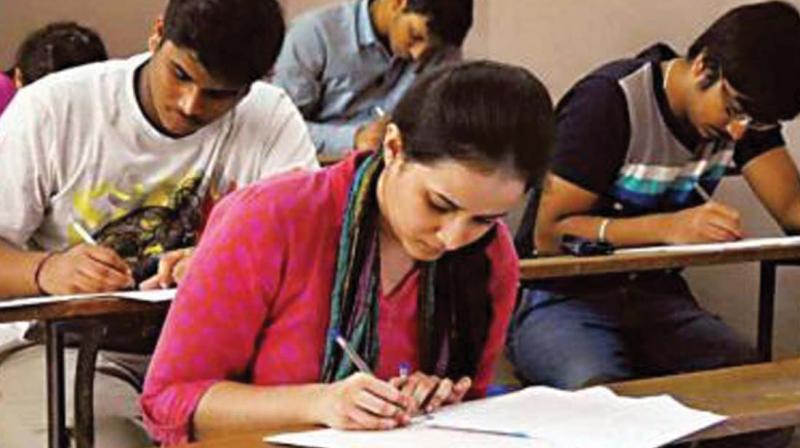NEET for study in non-English speaking countries
Medical Council of India plans to make screening test mandatory for students aspiring to study abroad.

National Eligibility cum Entrance Test (NEET) will emerge as the mandatory screening test for Indian students to pursue medical education not only in India but abroad as well. Students who are aspiring for medical education abroad are required to write NEET from this year. Around 53,000 Indian students are studying abroad in medical and dental programmes. Taking into account the need for quality assurance, Medical Council of India (MCI) is planning to emphasise eligibility for getting admission to foreign medical education especially in non-English speaking countries like China, Russia, Ukraine, Philippines, Malaysia, Georgia, etc.
Students who are interested in pursuing medical education from English speaking countries like UK, USA, Canada, Australia and New Zealand won't require NEET. But selection to undergraduate premedical courses is through SAT and TOEFL/IELTS English proficiency examinations. After completing four-year pre-medical BS programme, they can apply for MCAT-Medical college admission test and try to get admission to graduate medical programmes in English speaking countries. But Medical graduates from non-English speaking countries should write licentiate examination or PG NEET or FMGE stipulated in the forthcoming National Medical Council to get registration to practice in India. Till this year the success rate among foreign medical graduates was only 14-27 percent. Taking in to account the low level of pass percentage, MCI will introduce Plus Two Physics, Chemistry and Biology with minimum NEET cutoff marks as the eligibility criteria.
Students aspiring for medical education in non-English speaking countries are required to get eligibility certificate from MCI. Of the total number of students studying for medical education abroad, 75 percent are from India of which more than 3/4th is from Kerala. Recently when I visited several medical schools in Georgia including Tbilisi Medical School, I could see more than 75 percent medical students from Kerala. The move to introduce NEET as the eligibility test will position the medical education to attain quality. Moreover, it will facilitate bright students to pursue medical education abroad so that after completing the 6-year Doctor of Medicine programme which is equivalent to MBBS in India, they can take licensing exam for MCI registration.
Umpteen numbers of private educational consultancies are working in this field and its annual turnover, especially from India, is more than Rs 1000 crore. Moreover, with regard to NEET coaching in India, the turnover is more than Rs 1500 crore. If the medical council can enable the establishment of more medical colleges and increase the number seats In India, the huge drain of money from India can be reduced. The 2018-19 Union budget has proposed 24 new medical colleges in parliament constituencies that lack one. Medical education and coaching for NEET are emerging as one of the commercial enterprises in the country. During 2017, 10.5 lakh students appeared for NEET.
More than 10 percent of them are from Kerala. But available seats for MBBS and BDS are 55,000 and 25,000 respectively. It is a fact that a lot of medical aspirants are from India, but the number of seats is limited. Taking into account the situation, the need of the hour is to increase the number of seats with appropriate infrastructure facilities so that required number doctors as per WHO norms can be attained in the country.

